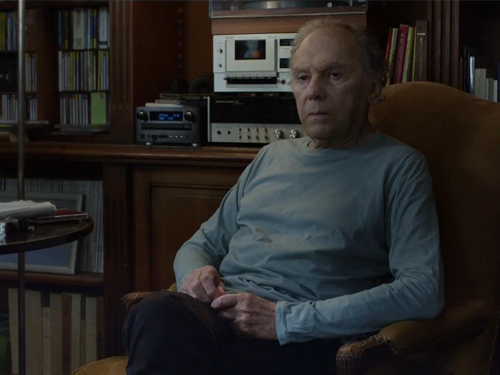
Georges and Anne are an octogenarian couple. They are cultivated, retired music teachers. Their daughter, also a musician, lives in Britain with her family. One day, Anne has a stroke, and the couple's bond of love is severely tested.
Scott Foundas Do you feel that this is a particularly contemporary story? People have always gotten old and sick, of course, but recently there has been so much reporting about the number of people living much longer and the crisis it’s creating within families, and in the healthcare system.
Michael Haneke: No, this was not the reason to do the film. Naturally, in the last few years, there have been a lot of films on this subject, many television films, which are important, because this is a real theme that exists in our society. But that’s not what interested me. The thing that interested me was the question: How to manage the suffering of someone you love? That’s the thing that touched me, that I wanted to investigate. It’s true that it’s also a very current subject because the population is getting older, but I could also have made this film 20 years ago, because this subject is universal and timeless. Everyone has parents, grandparents. You could also make a film about a couple in their thirties who have an eight-year-old child who’s dying of cancer; they face the same problem. But that’s a special tragic case, because getting cancer isn’t the destiny of everyone. But old age... it awaits us all. It’s inevitable.
Michael Haneke in an interview with Scott Foundas in The Village Voice
Read our Dutch translation of Haneke’s text on Bresson’s Au hasard Balthazar (“Schrecken und Utopie der Form - Süchtig nach Wahrhaftigkeit: Eine Kinoerzählung über Robert Bressons Au Hasard Balthazar”)

